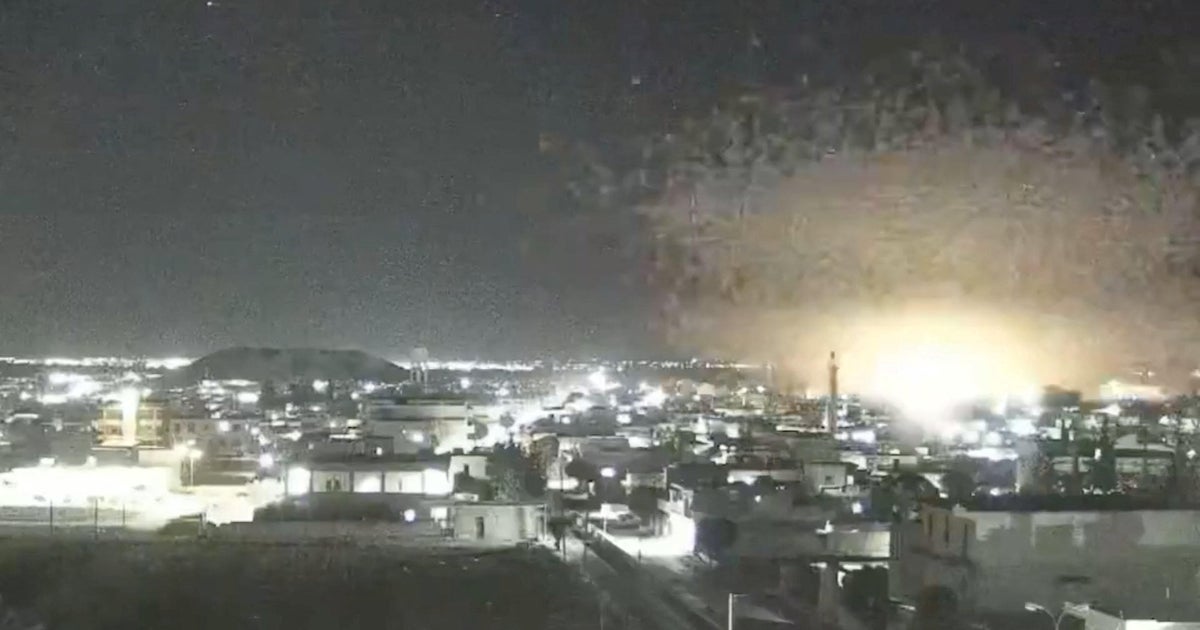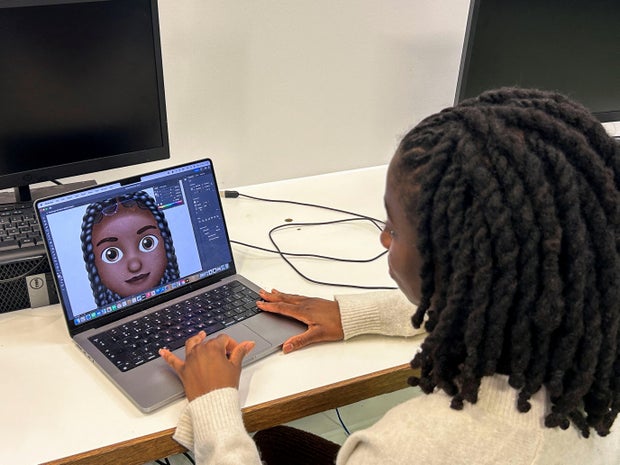CBS News
U.S.-allied Kurds in Syria say 12 killed in strikes as Turkey responds to attack on state-run defense firm

Turkey launched airstrikes late Wednesday in Kurdish-held parts of Syria and Iraq in retaliation for a deadly attack at a state-owned defense manufacturer in Ankara that saw at least two attackers kill four people and wound more than a dozen others.
The Turkish government blamed the separatist Kurdistan Workers’ Party (PKK) for what President Recep Tayyip Erdogan called a “nefarious” attack on the Turkish Aerospace Industries headquarters outside the capital.
Video verified by CBS News Confirmed showed damage to electrical infrastructure in Kobani and Qamishli, the de-facto capital of the semi-autonomous region controlled by Kurdish-majority forces in northeast Syria.
The Syrian Democratic Forces (SDF) — who were key U.S. allies in the war against ISIS in the region — said Thursday that 12 people were killed, including two children, and 25 others wounded in widespread Turkish air and artillery strikes. Turkey’s defense ministry said it struck 47 “terrorist targets” in Syria and Iraq.
Social Media/via REUTERS
SDF commander General Mazlum Abdi condemned the Turkish strikes as indiscriminate, saying they had hit civilian infrastructure, including health centers, in northeast Syria.
“We have repeatedly shown our readiness for dialogue. Meanwhile, we affirm that our forces are ready to defend our people and land,” Abdi said in a post on X.
Some 900 U.S. forces remain in the region as part of the international coalition against ISIS, and the SDF has long been America’s primary partner on the ground in northeast Syria. Neither the U.S. Defense Department nor its Central Command had commented on the attack in Ankara, or on Turkey’s retaliatory strikes, by Thursday morning.
Ankara considers the U.S.-backed SDF and its civilian body, the YPG, to be directly linked to the PKK, which has waged a decades-long insurgency in Turkey.
The PKK, long designated a terrorist organization by Turkey and the U.S., is nominally headquartered in the Qandil mountains of northern Iraq. Turkey regularly strikes the region.
No group has claimed responsibility for Wednesday’s attack in Ankara, which came at a time of renewed talks between the Turkish government and the PKK’s leader, Abdullah Ocalan, who has been imprisoned in Turkey for more than two decades.
On Thursday, Ocalan’s nephew Omer, a member of Turkey’s parliament, conveyed a message from the PKK leader suggesting he was prepared to end the violent conflict that has raged since the mid-1980s.
Erdogan ally and Nationalist Movement Party leader Devlet Bahceli had earlier invited Ocalan to address parliament, and said the 75-year-old could be paroled in exchange for disbanding the PKK.
CBS News
Young designers push for new emojis with Black, mixed-race hairstyles

London — There are almost 4,000 emojis to help people express themselves online, but a group of young design students in London says none of them feature Black or mixed-race hairstyles, and they’re determined to change that.
“As a Black creative and someone who’s constantly changing their hair, this campaign is really personal to me,” said Olivia Mushigo, senior creative on the Rise.365 team.
The London youth group is determined to break down beauty stereotypes with the first ever emojis featuring afros, braids, cornrows and locs.
Catarina Demony/REUTERS
“I feel like there’s a negative stereotype around coarser hair textures, among like, Afro hair,” project designer Jayzik Duckoo said.
Team member Chavez agreed, adding that, “especially in a school environment, things like people wanting to touch your hair, talk about your hair — it will make you feel like you don’t belong.”
The students started sketching styles — revealing how they’d like to be seen in the digital space to tackle “texturism,” a form of discrimination that perceives afro hair as unprofessional, unattractive or unclean.
“There were so many different designs, it was so hard to just narrow it down to just four,” said Mushigo, “because Black and mixed-race hair is so diverse.”
Difficult work, but Duckoo said the creative process — designing the emojis, “was really fun… it was nice to see how it came out.”
Emojis were first created in Japan in the 1990s. The advent of smart phones and the increased use of text messaging led to a global surge in their use over the last two decades, and this isn’t the first time there’s been a push to make emojis more inclusive. In 2015, Apple created 300 new emojis, some highlighting different races and professions, in response to a backlash from consumers.
The London team’s four new emoji designs will be submitted in April to Unicode, the California-based organization that approves or rejects all new emojis.
“There’s a lot of history behind our hair,” said Joyclen Brodie-Mends Buffong, the founder of the Rise.365 community interest company behind the project. “We take a lot of time to do our hair, so for us it’s important to want to be seen in a positive light.”
Rise.365 has asked others to help promote their cause by searching “Afro hair emoji” on social media and search engines, to boost data around the query, which will help their bid when they submit their proposed emojis in the spring.
For now, they can only wait, and hope their creative and inclusive emojis will make the cut.
CBS News
Designers push for Black hairstyle emojis

Watch CBS News
Be the first to know
Get browser notifications for breaking news, live events, and exclusive reporting.
CBS News
Harris campaign trying to highlight negatives about Trump as campaign winds down

Watch CBS News
Be the first to know
Get browser notifications for breaking news, live events, and exclusive reporting.









